
A metal door mural depicting a Greek goddess, presumed to be a work by Banksy: photo by Adel Hana/AP via The Guardian, 1 April 2015
Niobe was the daughter of Tantalus, and the wife of Amphion.
...Your kingdom come. Your will be done on earth [including Gaza] as it is in heaven. #Banksy: image via Andrew Dutney @AndrewDutney, 16 April 2015
Niobe and Amphion produced
quite a big family: six sons and six daughters, according to Homer; or
seven sons and seven daughters, according to Ovid; and there are other
accounts as well, some with curiously unequal offspring totals, as
though the keeper of the annals had been toiling by uncertain lamplight
in an underground still hid deep in the primal woods on the ruined
twilight borders of Arcadia.

@Naz1love: #Banksy #returns to #Gaza & #creates 4 more pieces of #artwork: image via Gianni Rambelli @gianni_nigla, 15 April 2015
The
point about Niobe to be condensed from the in this numerical way somewhat
confusing data, as far as the never overly patient gods were concerned,
was
simple.

@Naz1love: #Banksy #returns to #Gaza & #creates 4 more pieces of #artwork: image via Gianni Rambelli @gianni_nigla, 15 April 2015

The now empty doorway on the rubble of a building destroyed in last summer’s Israel-Hamas war: photo by Adel Hana/AP via The Guardian, 1 April 2015
It might be expressed as a formula. Niobe = reproductive abundance + attached lineage potential.

At the center of the dispute is the image of a goddess holding her head in her hand, which had been spray-painted on a iron-and-brick doorway: photo by Mohammed Saber/EPA via The Guardian, 9 April 2015
The significance of this talent of hers was, naturally, not lost on Niobe. Ability to bear offspring was considered a formidable asset in these mythic spheres. If, moreover, you are, in any sphere, lucky enough to be good at something, it's not unforgiveable to now and then give in to the temptation to appreciate yourself, at least a little bit.

Bomb damage, Gaza City: image by Banksy, 2015
Niobe's natural pride in her appreciable skill would betray her, though. The next thing that happened was down to her regrettable habit of getting her swag on in range of serious, supersensitive, movie-star-vain senior goddesses.
Couldn't help herself really.

A metal door that depicted a Greek
goddess, presumably painted by British street graffiti artist Banksy,
was standing on the rubble of a destroyed building damaged in last
summer's Israel-Hamas war, east of Jebaliya, 31 March 2015: photo by Adel Hana/AP via Time, 1 April 2015
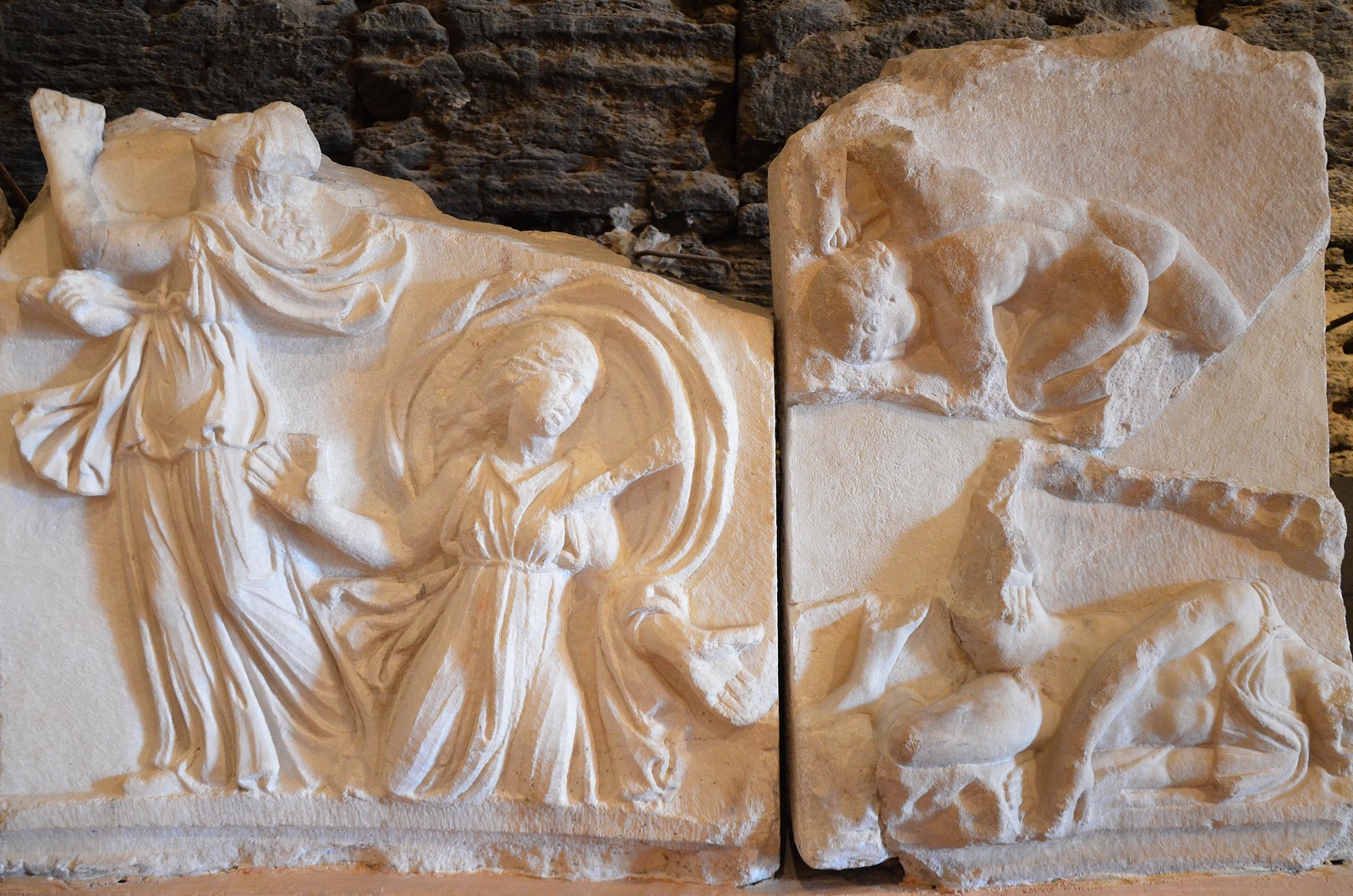
Artemis frieze from the scaenae frons of the Roman theatrem (plaster cast), myth of Niobe, the killing of the daughters of Niobe by Artemis and Apollo, Hierapolis Archaeological Museum, Turkey: photo by Carole Raddato, 3 April 2015
Everyone was aware Leto had produced but two offspring; yet while hardly numerous, this divine brood made up in distinction what it may have lacked in units; it included major forces of earth and sky, by name, Artemis and Apollo.
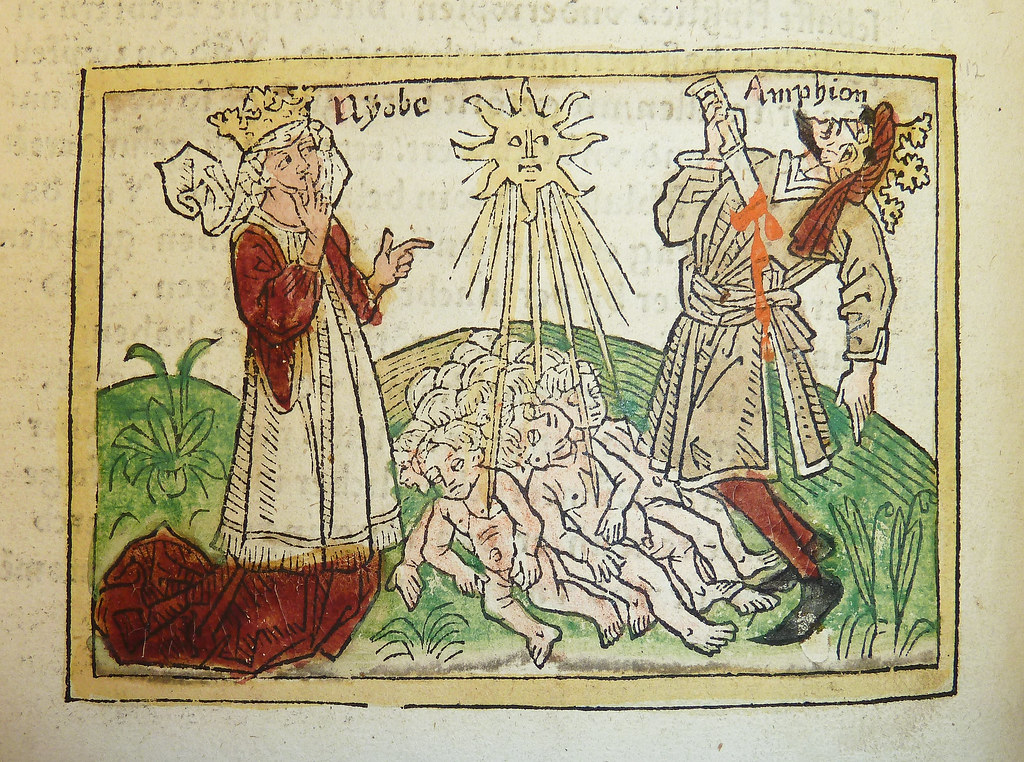
Woodcut illustration of Niobe, Amphion and their dead sons, hand-colored in red, green, yellow and black, from an incunable German translation by Heinrich Steinhöwel of Giovanni Boccaccio's De mulieribus claris, printed by Johannes Zainer at Ulm ca. 1474: photo by POP, 22 December 2011
Bigging
herself up at Leto's expense was not a good move on Niobe's part.
Capricious they are, and cruel, and cold, and infinitely gossip-loving,
these gods, the original celestial one percent, ensonced as they are
on their comfortably funded sofas looking out over a landscape in which
the distant figures of peasants are miniaturized, stilled -- falling
about, enjoying watching the sufferings of those tiny figures crawling
across the distant horizon, even, if they please, taking an idle hand to the history, writing-in the odd bit of casual mischief, the gratuitous
prank here and there, revisions executed in the vague Arcadian twilight with odd
blank expressions of half-distracted amusement, almost as if
human, kids in a school playground, pulling the wings off flies.
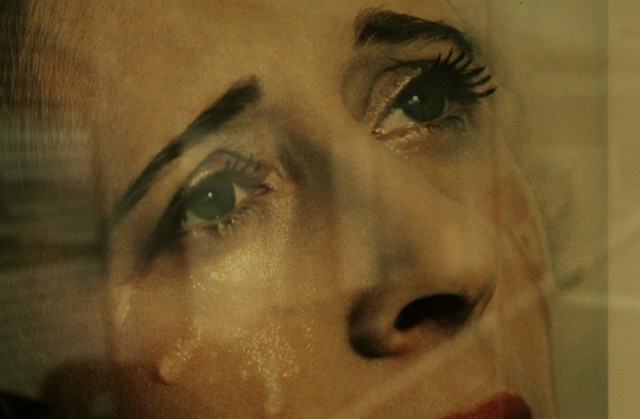

Lady Malcolm Campbell as Niobe, Madame Yvonde, Artist Muse, Study Gallery: photo by Claudia Gabriela Marques Vieira, 19 January 2008
Though of course school is out, now.

Niobe: Na Praça da República, em frente ao Palácio do Campo das Princesas (Recife, Pernambuco, Brazil): photo by Alexandre Maia, 21 December 2011

Niobe: Na Praça da República, em frente ao Palácio do Campo das Princesas (Recife, Pernambuco, Brazil): photo by Alexandre Maia, 21 December 2011
Have you noticed, by the by, the extraordinary numbers of crows
that are all about us here in northern Arcadia these days? We're having kamikaze
flights of twenty and thirty large corvids flocking at a time, in the midst of morning rush hour traffic, large black bodies dipping suicidally down into the busy roadway to snap
up bits of carrion -- often, in fact, the snack-bit will consist of the embarrassed recent remains of one of their own
lot, another martyr to the traffic gods. They're dropping like flies.

I mean talk about omens. Et in Arcadia: ruin.
Certainly an inclination to boast will often tilt back to haunt, but let's not forget that Niobe, to now take her part for a moment, had grounds: those impressive production numbers of hers.
That finished it for Niobe, that one little remark. The heavenly offspring of
Leto, Apollo and Artemis, put their divine heads together for about two
seconds and came up with a typically direct celestial resolution of the matter: to defend their mother's honour they would execute a
brutal mass murder that would wipe out Niobe and her entire brood, on
the one hand because it just had to happen, and on the other just for
the sheer two-seconds random fun of it (because, of course, they were
the gods, and could do as they pleased).
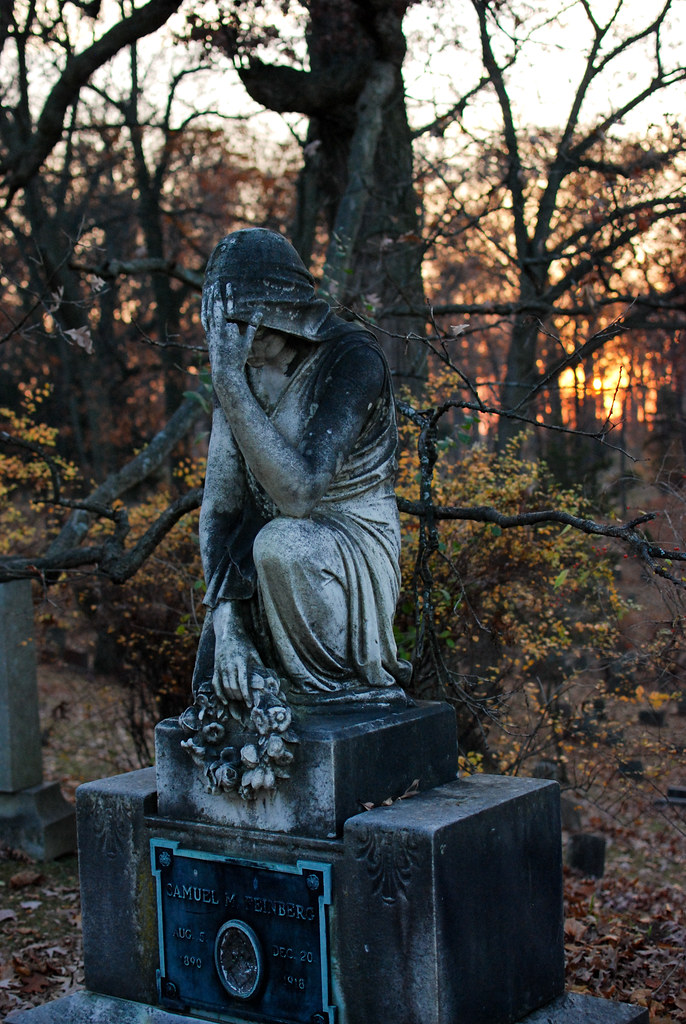
Niobe weeping (Ann Arbor, Michigan): photo by Phil Dokas, 8 November 2009

Niobe weeping (Ann Arbor, Michigan): photo by Phil Dokas, 8 November 2009
In mythology this unseemly archaic bloodbath is described as divine retribution, cosmic justice working itself out.
Homer tells that an impatient Zeus finally had the whole offending lot
turned to stone, though Niobe herself survived long enough to interrupt her
lamentations by tucking away at least that one nutritious meal before,
wearied by all her tear-shedding, she too was turned to stone, and
became Mt. Sipylon.
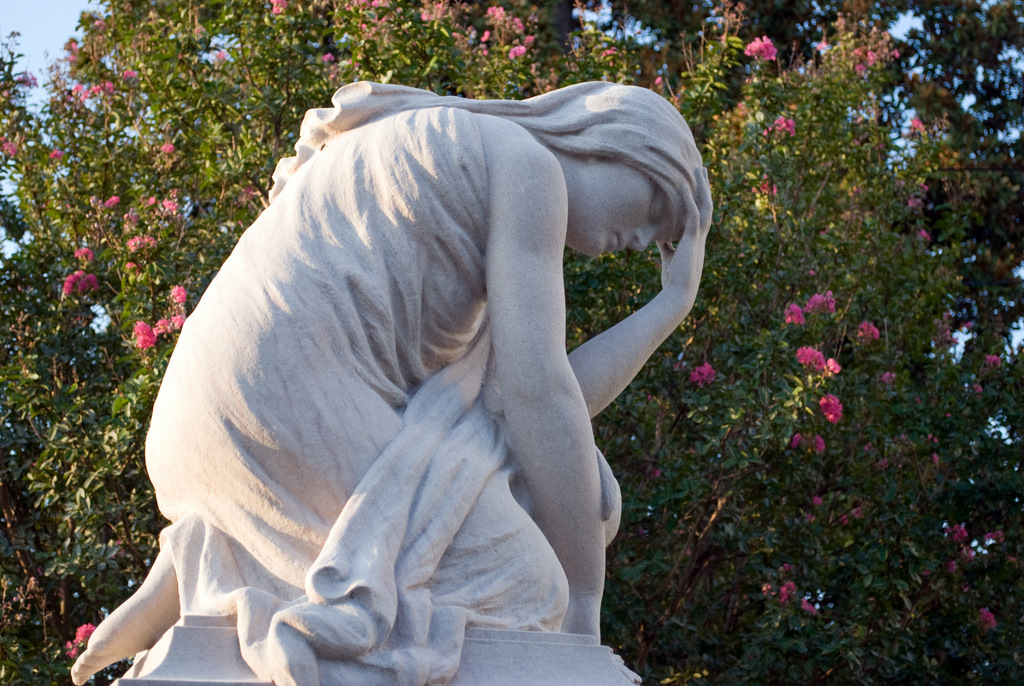
Oakland Cemetery, Atlanta: Gray memorial -- Niobe weeping: photo by Steve Grundy, 31 July 2011
On the tenth day after these events, the gods, not so much because they had any sort of a heart or hearts as because the slopes near the site of the slaughter were becoming less and less pleasant to visit, what with the unfortunate views and the odd smell and all, had the stone dead children of Niobe buried at last.
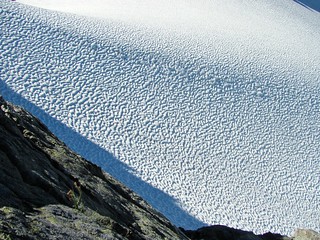
Niobe Glacier: photo by Jamie McIntyre, 3 April 2011
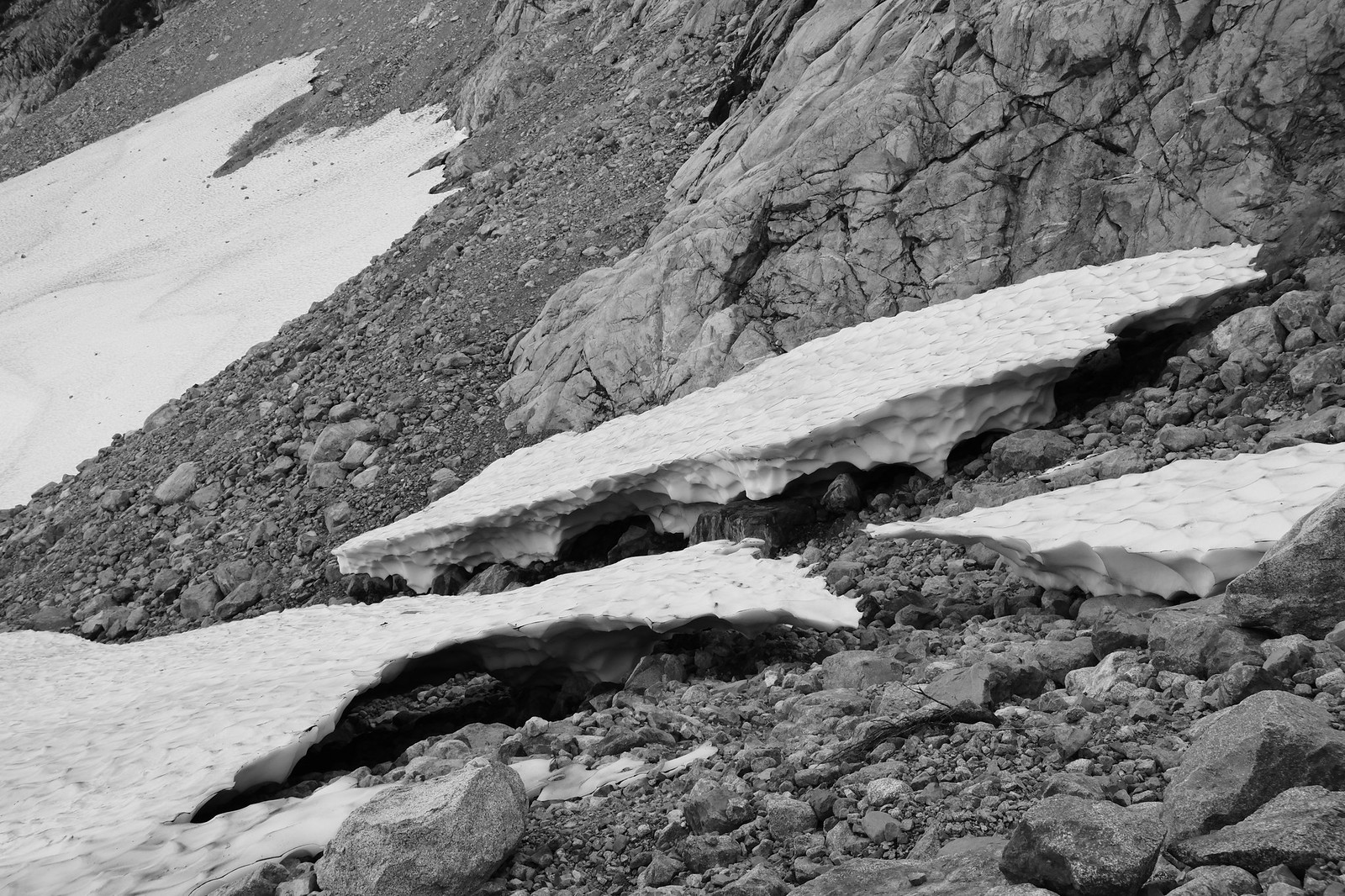
Edge of a glacier on Niobe: photo by Patrick Gillin, 14 September 2014
The Transformation of Niobe
Widow'd, and childless, lamentable state!
A doleful sight, among the dead she sate;
Harden'd with woes, a statue of despair,
To ev'ry breath of wind unmov'd her hair;
Her cheek still red'ning, but its colour dead,
Faded her eyes, and set within her head.
No more her pliant tongue its motion keeps,
But stands congeal'd within her frozen lips.
Stagnate, and dull, within her purple veins,
Its current stop'd, the lifeless blood remains.
Her feet their usual offices refuse,
Her arms, and neck their graceful gestures lose:
Action, and life from ev'ry part are gone,
And ev'n her entrails turn to solid stone;
Yet still she weeps, and whirl'd by stormy winds,
Born thro' the air, her native country finds;
There fix'd, she stands upon a bleaky hill,
There yet her marble cheeks eternal tears distill.
Ovid: Metamorphoses, 1 A.C.E, translated into English verse under the direction of Sir Samuel Garth by John Dryden, Alexander Pope, Joseph Addison, William Congreve and other eminent hands, 1717: from Book VI: The story of Niobe
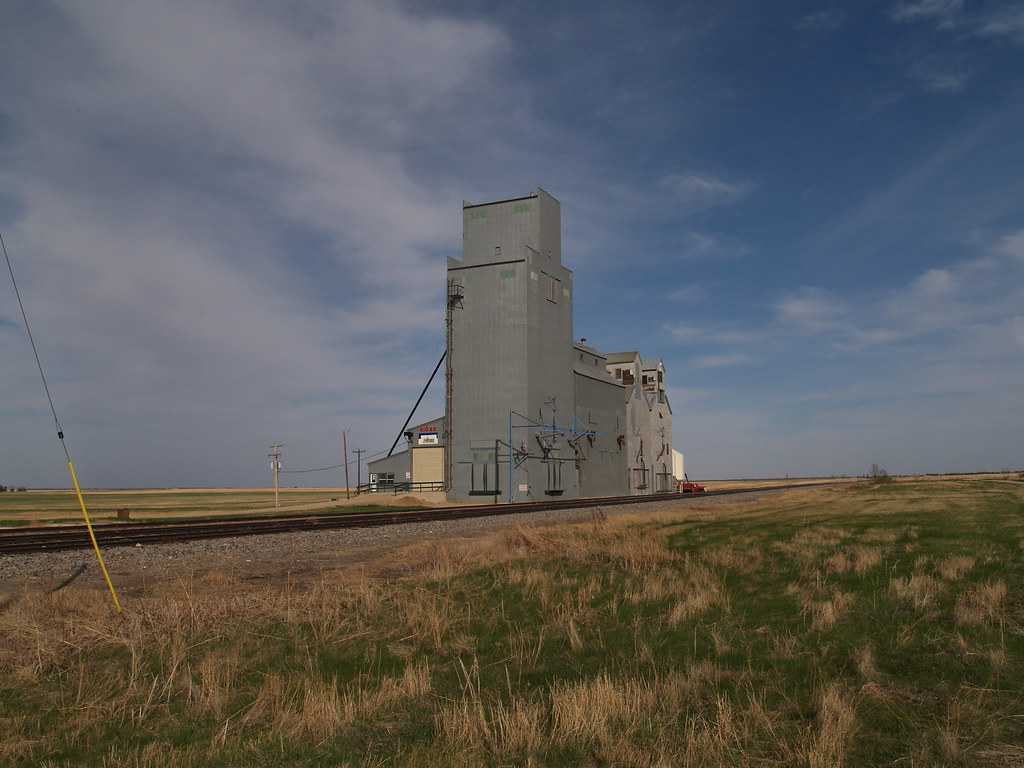
Niobe, North Dakota: photo by Andrew Filer, 21 May 2008

Oakland Cemetery, Atlanta: Gray memorial -- Niobe weeping: photo by Steve Grundy, 31 July 2011
On the tenth day after these events, the gods, not so much because they had any sort of a heart or hearts as because the slopes near the site of the slaughter were becoming less and less pleasant to visit, what with the unfortunate views and the odd smell and all, had the stone dead children of Niobe buried at last.

Niobe Glacier: photo by Jamie McIntyre, 3 April 2011
Niobe's
petrified grief became the symbolic garment of grieving women in
moments of extreme pathos, especially weeping mothers, everywhere, such
is her belated vindication, the recognition in stone of a sort of not
quite good
enough recompense, so belated, after all that, who would really wish to
be honoured as a woman of stone forever bereft, forever weeping, and of
course the gods never issued an apology.

Edge of a glacier on Niobe: photo by Patrick Gillin, 14 September 2014
The Transformation of Niobe
Widow'd, and childless, lamentable state!
A doleful sight, among the dead she sate;
Harden'd with woes, a statue of despair,
To ev'ry breath of wind unmov'd her hair;
Her cheek still red'ning, but its colour dead,
Faded her eyes, and set within her head.
No more her pliant tongue its motion keeps,
But stands congeal'd within her frozen lips.
Stagnate, and dull, within her purple veins,
Its current stop'd, the lifeless blood remains.
Her feet their usual offices refuse,
Her arms, and neck their graceful gestures lose:
Action, and life from ev'ry part are gone,
And ev'n her entrails turn to solid stone;
Yet still she weeps, and whirl'd by stormy winds,
Born thro' the air, her native country finds;
There fix'd, she stands upon a bleaky hill,
There yet her marble cheeks eternal tears distill.
Ovid: Metamorphoses, 1 A.C.E, translated into English verse under the direction of Sir Samuel Garth by John Dryden, Alexander Pope, Joseph Addison, William Congreve and other eminent hands, 1717: from Book VI: The story of Niobe

Niobe, North Dakota: photo by Andrew Filer, 21 May 2008
She falleth on the corses colde, and taking no regard,
Bestowde hir kysses on hir sonnes as whome she afterwarde
Did know she never more shoulde kisse. From whome she lifting thoe
Bestowde hir kysses on hir sonnes as whome she afterwarde
Did know she never more shoulde kisse. From whome she lifting thoe
Hir blew and broosed armes to heaven sayd: O thou cruell foe
Latona, feede, yea feede thy selfe I say upon my woe
And overgorge thy stomacke, yea and glut thy cruell hart
With these my present painefull pangs of bitter griping smart.
In corses seven I seven times deade am caried to my grave.
Rejoyce thou foe and triumph now in that thou seemste to have
Latona, feede, yea feede thy selfe I say upon my woe
And overgorge thy stomacke, yea and glut thy cruell hart
With these my present painefull pangs of bitter griping smart.
In corses seven I seven times deade am caried to my grave.
Rejoyce thou foe and triumph now in that thou seemste to have
The upper hande. What? upper hand? no no it is not so.
As wretched as my case doth seeme, yet have I left me mo
Than thou for all thy happinesse canst of thine owne account.
Even after all these corses yet I still doe thee surmount.
Upon the ende of these same wordes the twanging of the string
In letting of the Arrow flie was clearly heard: which thing
Made every one save Niobe afraide. Hir heart was so
With sorrowe hardned, that she grew more bolde. Hir daughters tho
Were standing all with mourning weede and hanging haire before
Their brothers coffins. One of them in pulling from the sore
An Arrow sticking in his heart, sanke downe upon hir brother
With mouth to mouth, and so did yeelde hir fleeting ghost. Another
In comforting the wretched case and sorrow of hir mother
Upon the sodaine helde hir peace. She stricken was within
With double wound: which caused hir hir talking for to blin
And shut hir mouth: but first hir ghost was gone. One all in vaine
Attempting for to scape by flight was in hir flying slaine.
Another on hir sisters corse doth tumble downe starke dead.
This quakes and trembles piteously, and she doth hide hir head.
And when that sixe with sundrye woundes dispatched were and gone,
At last as yet remained one: and for to save that one,
Hir mother with hir bodie whole did cling about hir fast,
And wrying hir did over hir hir garments wholy cast:
And cried out: O leave me one: this little one yet save:
Of many but this only one the least of all I crave.
But while she prayd, for whome she prayd was kild. Then down she sate
Bereft of all hir children quite, and drawing to hir fate,
Among hir daughters and hir sonnes and husband newly dead.
Hir cheekes waxt hard, the Ayre could stirre no haire upon hir head.
The colour of hir face was dim and clearly voide of blood,
And sadly under open lids hir eyes unmoved stood.
In all hir bodie was no life. For even hir verie tung
And palat of hir mouth was hard, and eche to other clung.
Hir Pulses ceased for to beate, hir necke did cease to bow,
Hir armes to stir, hir feete to go, all powre forwent as now.
And into stone hir verie wombe and bowels also bind.
But yet she wept: and being hoyst by force of whirling wind
Was caried into Phrygie. There upon a mountaines top
She weepeth still in stone. From stone the drerie teares do drop.
As wretched as my case doth seeme, yet have I left me mo
Than thou for all thy happinesse canst of thine owne account.
Even after all these corses yet I still doe thee surmount.
Upon the ende of these same wordes the twanging of the string
In letting of the Arrow flie was clearly heard: which thing
Made every one save Niobe afraide. Hir heart was so
With sorrowe hardned, that she grew more bolde. Hir daughters tho
Were standing all with mourning weede and hanging haire before
Their brothers coffins. One of them in pulling from the sore
An Arrow sticking in his heart, sanke downe upon hir brother
With mouth to mouth, and so did yeelde hir fleeting ghost. Another
In comforting the wretched case and sorrow of hir mother
Upon the sodaine helde hir peace. She stricken was within
With double wound: which caused hir hir talking for to blin
And shut hir mouth: but first hir ghost was gone. One all in vaine
Attempting for to scape by flight was in hir flying slaine.
Another on hir sisters corse doth tumble downe starke dead.
This quakes and trembles piteously, and she doth hide hir head.
And when that sixe with sundrye woundes dispatched were and gone,
At last as yet remained one: and for to save that one,
Hir mother with hir bodie whole did cling about hir fast,
And wrying hir did over hir hir garments wholy cast:
And cried out: O leave me one: this little one yet save:
Of many but this only one the least of all I crave.
But while she prayd, for whome she prayd was kild. Then down she sate
Bereft of all hir children quite, and drawing to hir fate,
Among hir daughters and hir sonnes and husband newly dead.
Hir cheekes waxt hard, the Ayre could stirre no haire upon hir head.
The colour of hir face was dim and clearly voide of blood,
And sadly under open lids hir eyes unmoved stood.
In all hir bodie was no life. For even hir verie tung
And palat of hir mouth was hard, and eche to other clung.
Hir Pulses ceased for to beate, hir necke did cease to bow,
Hir armes to stir, hir feete to go, all powre forwent as now.
And into stone hir verie wombe and bowels also bind.
But yet she wept: and being hoyst by force of whirling wind
Was caried into Phrygie. There upon a mountaines top
She weepeth still in stone. From stone the drerie teares do drop.
Ovid. Metamorphoses. Arthur Golding. London. W. Seres. 1567
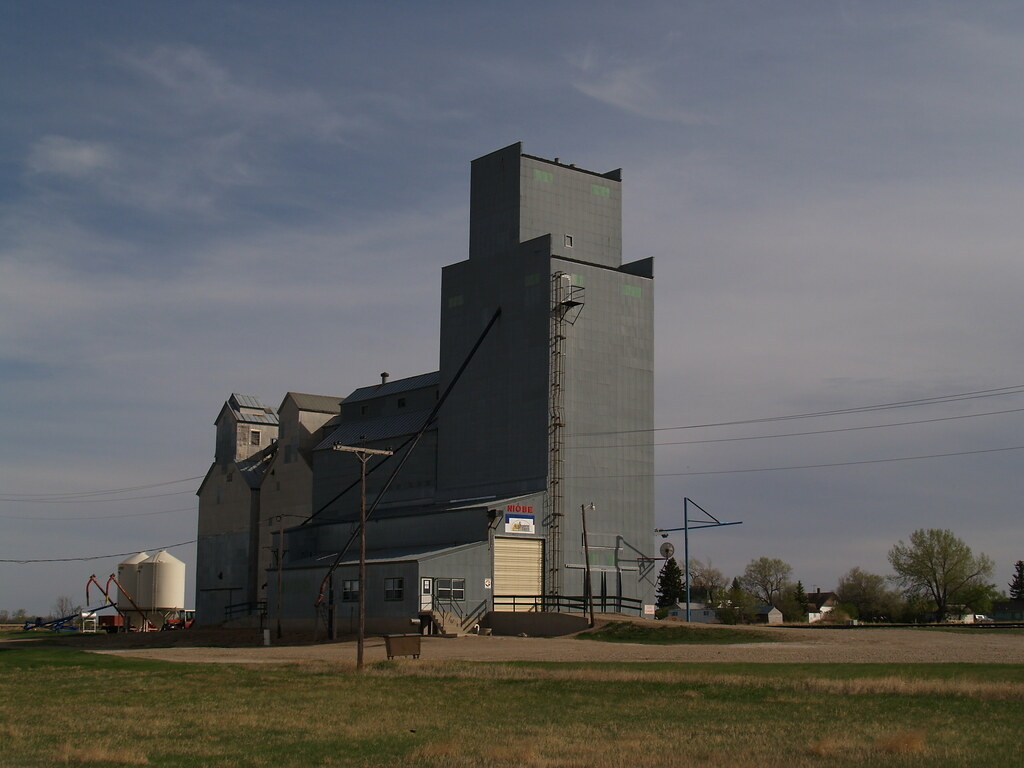
Niobe, North Dakota: photo by Andrew Filer, 21 May 2008
Ill newes, the peoples griefe, her housholds teares
Ovid's Metamorphosis, George Sandys, 1632

Niobe, North Dakota: photo by Andrew Filer, 21 May 2008
Ill newes, the peoples griefe, her housholds teares
Present their ruine to their mothers eares:
Who wonders how the Gods their liues durst touch;
And swels with anger that their powre was such.
For sad Amphion, wounding his owne brest,
Had now his sorrow, with his soule releast.
How different is this Niobe from that!
Who great Latona's Rites supprest of late,
And proudly pac't the streets; enui'd by those
That were her friends; now pittied by her foes!
Frantick she doth on their cold corses fall,
And her last kisses distributes to all.
From whom, to heauen erecting her bruz'd armes:
Cruell Latona, feast thee with our harmes:
Feast, feast, she said, thy saluage stomack cloy;
Cloy thy wild rage, and in our sorrow ioy:
Seauen times, vpon seauen Herses borne, I dy.
Triumph, triumph, victorious foe. But why
Victorious? haplesse I haue not so few:
Who, after all these funeralls, subdew.
This said, the bow-string twangs. Pale terror chils
All hearts saue Niobes; obdur'd by ills.
The sisters, in long mourning robes array'd,
About their herses stood, with haire display'd.
One drawes an arrow from her brothers side;
And ioyning her pale lips to his, so dide.
Another striuing to asswage the woes
That rackt her mother, forth-with speechlesse growes;
And bowing with the wound, which inly bled,
Shuts her fixt teeth; the soule already fled.
This, flying falls: that, her dead sister makes
Her bed of death: this, hides her selfe: that quakes.
Six slaine by sundry wounds; to shield the last,
Her mother, ouer her, her body cast,
This one, she cryes, and that the least, ô saue!
The least of many, and but one, I craue!
Whilst thus she sues, the su'd-for Delia hits.
Shee, by her husband, sons, and daughters, sits
A childlesse widdow; waxing stiffe with woes.
The winds wags not one haire; the ruddy rose
Forsakes her cheeke: in her declining head
Her eye-balls fix: through-out appearing dead.
Her tongue, and pallat rob'd of inward heat
At once congeale: her pulse forbeares to beat:
Her neck wants power to turne, her feet to goe,
Her armes to moue: her very bowels grow
Into a stone. She yet retaines her teares.
Whom straight a whirle-winde to her country beares;
And fixes on the summit of a hill.
Now from that mourning marble teares distill.
Ovid's Metamorphosis, George Sandys, 1632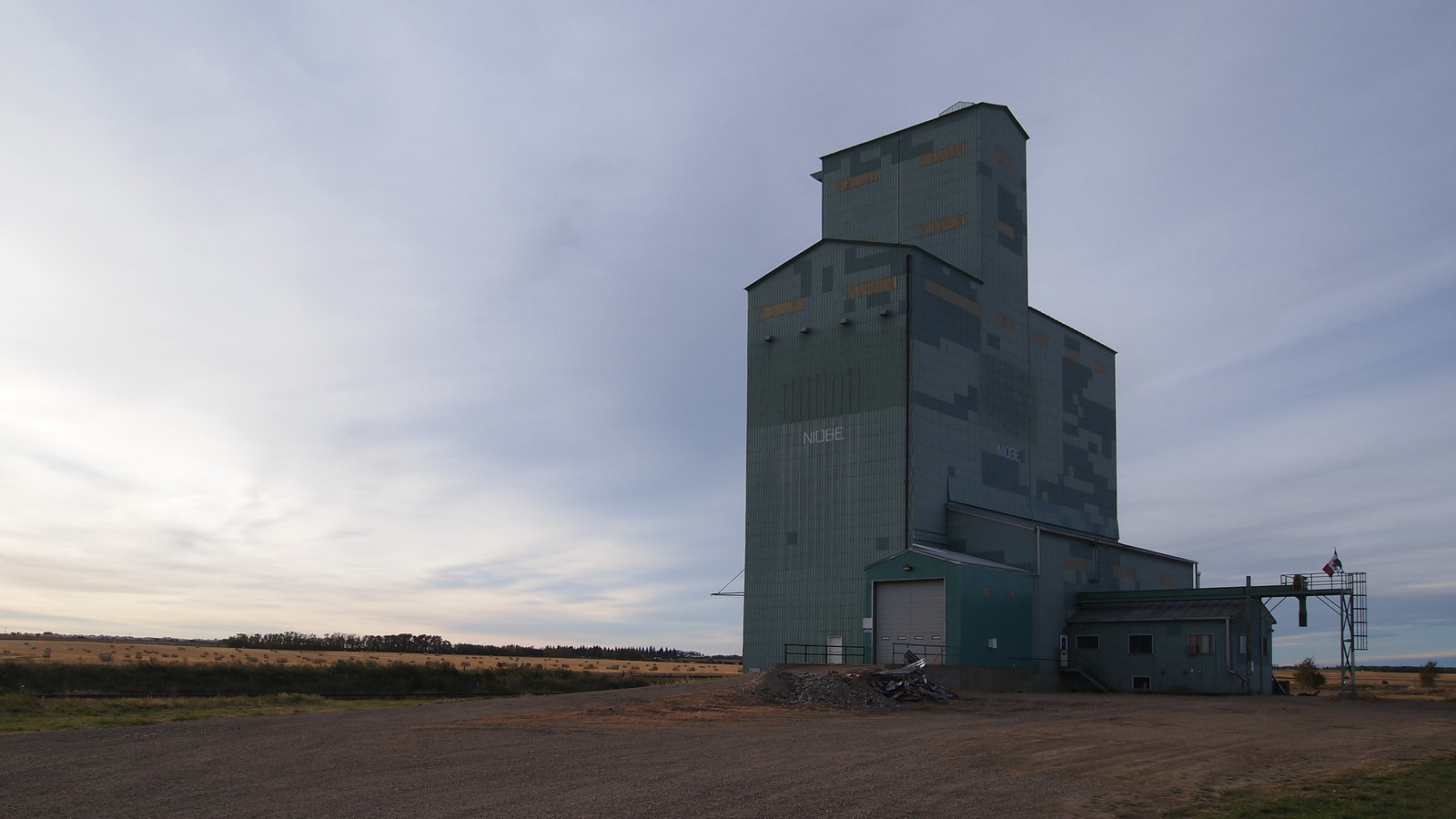
Niobe, Alberta Grain Elevator: photo by Wilson Hui, 28 September 2013
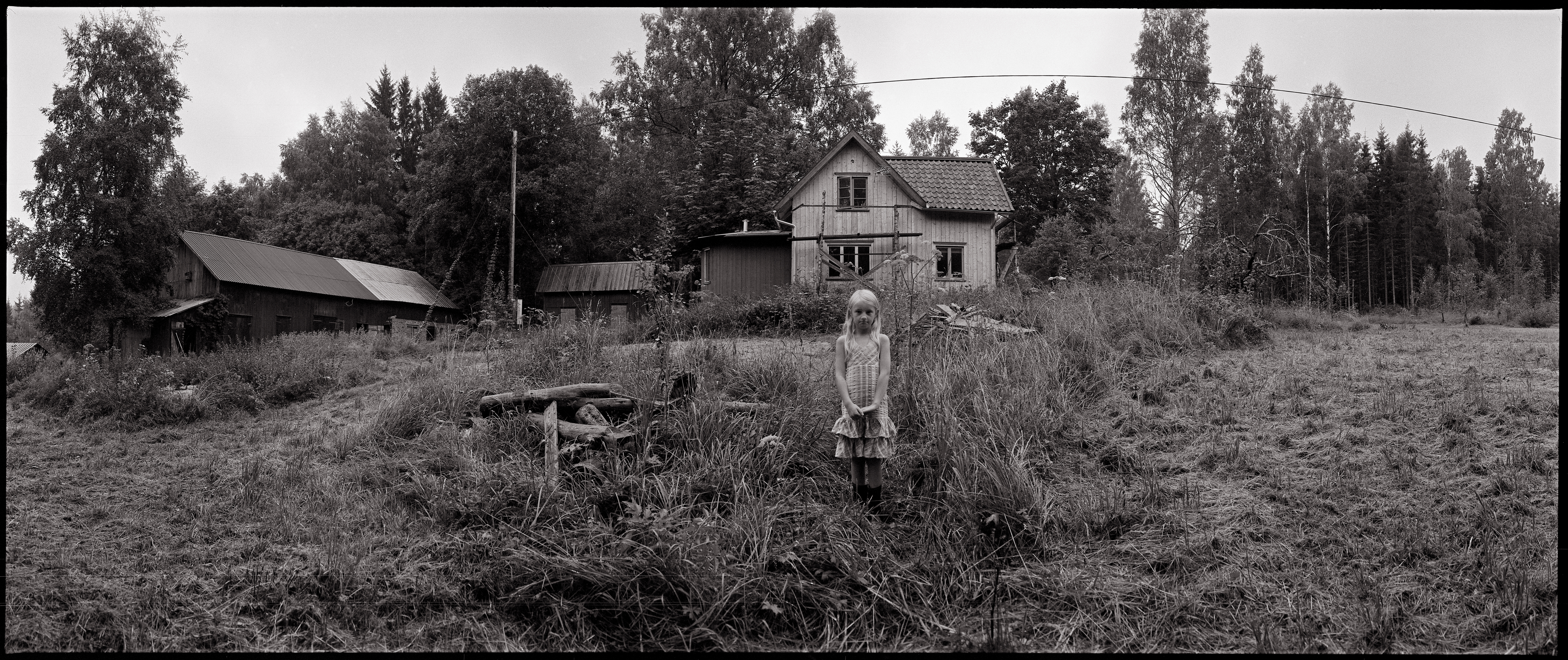


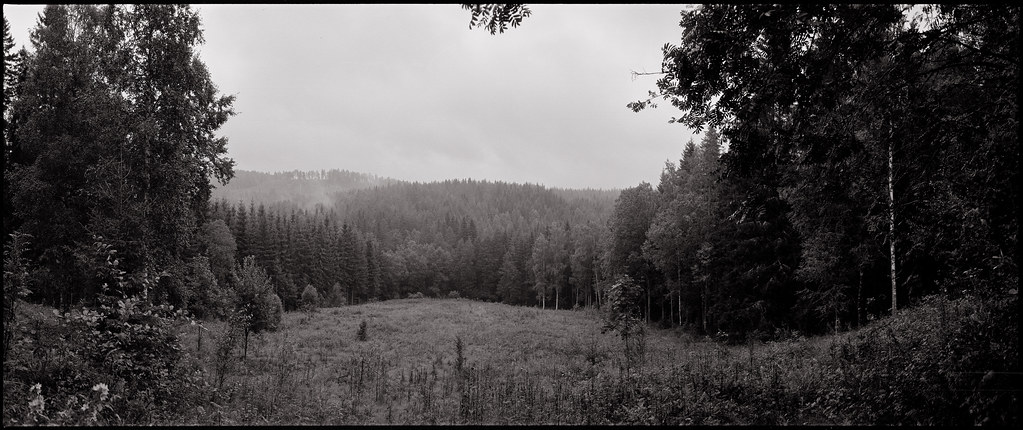
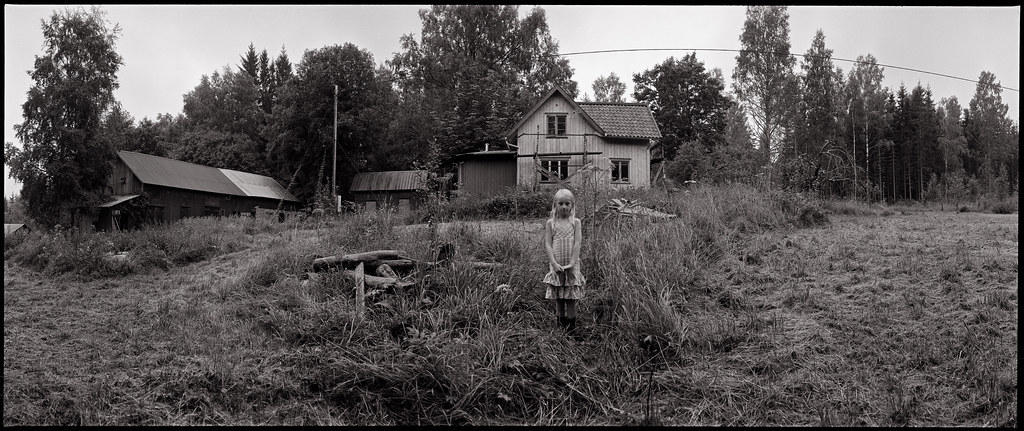
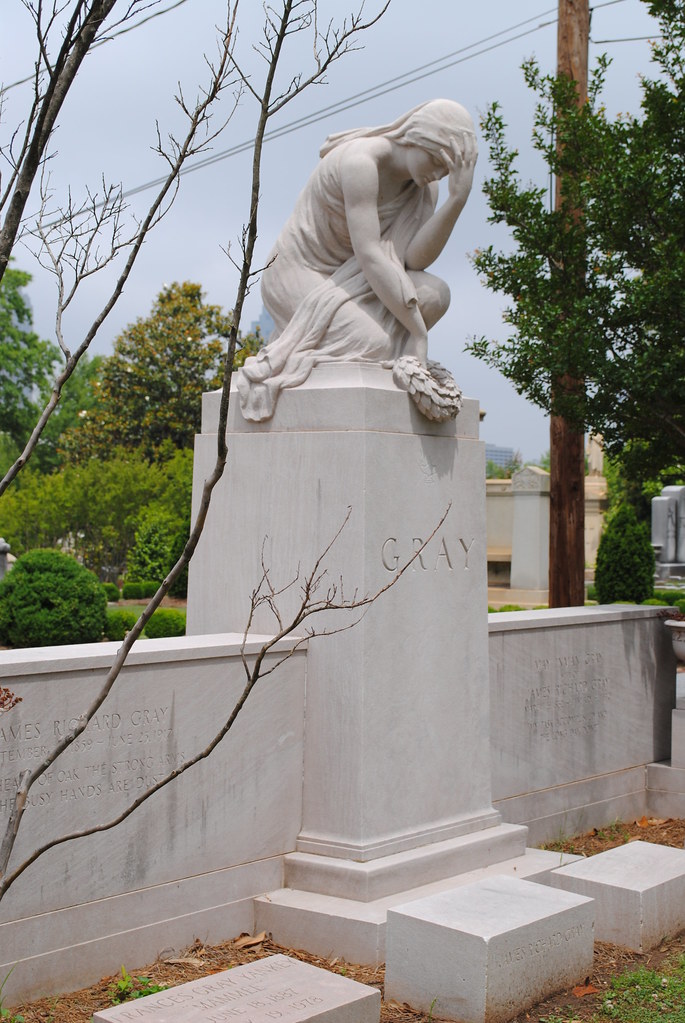
SO BEAUTFUL!
ReplyDeleteHave you heard about the Weeping Rock in Turkey? It is located in Mount Sipylus, Manisa, and is known as Niobe's Rock. It is a rock in the shape of a weeping woman, which the ancient Greeks believed to be Niobe.
ReplyDeleteYou can see an image here from my Flickr photostream https://www.flickr.com/photos/carolemage/19170639905/in/photostream/
Jess, Thanks very much!
ReplyDeleteCarole, First, thanks for the very helpful shot of the Artemis frieze, and yes, I've actually (long ago) laid eyes on the weeping woman rock... indeed, when I posted before on Niobe, c. six years ago, "her" rock was in the post.
But as we don't know that the rock is anything near a fair likeness (!), I thought this time to represent Niobe in a somewhat more abstract way, through those rather forlorn (to my eyes anyway) prairie grain elevators in remote, isolated places called Niobe...